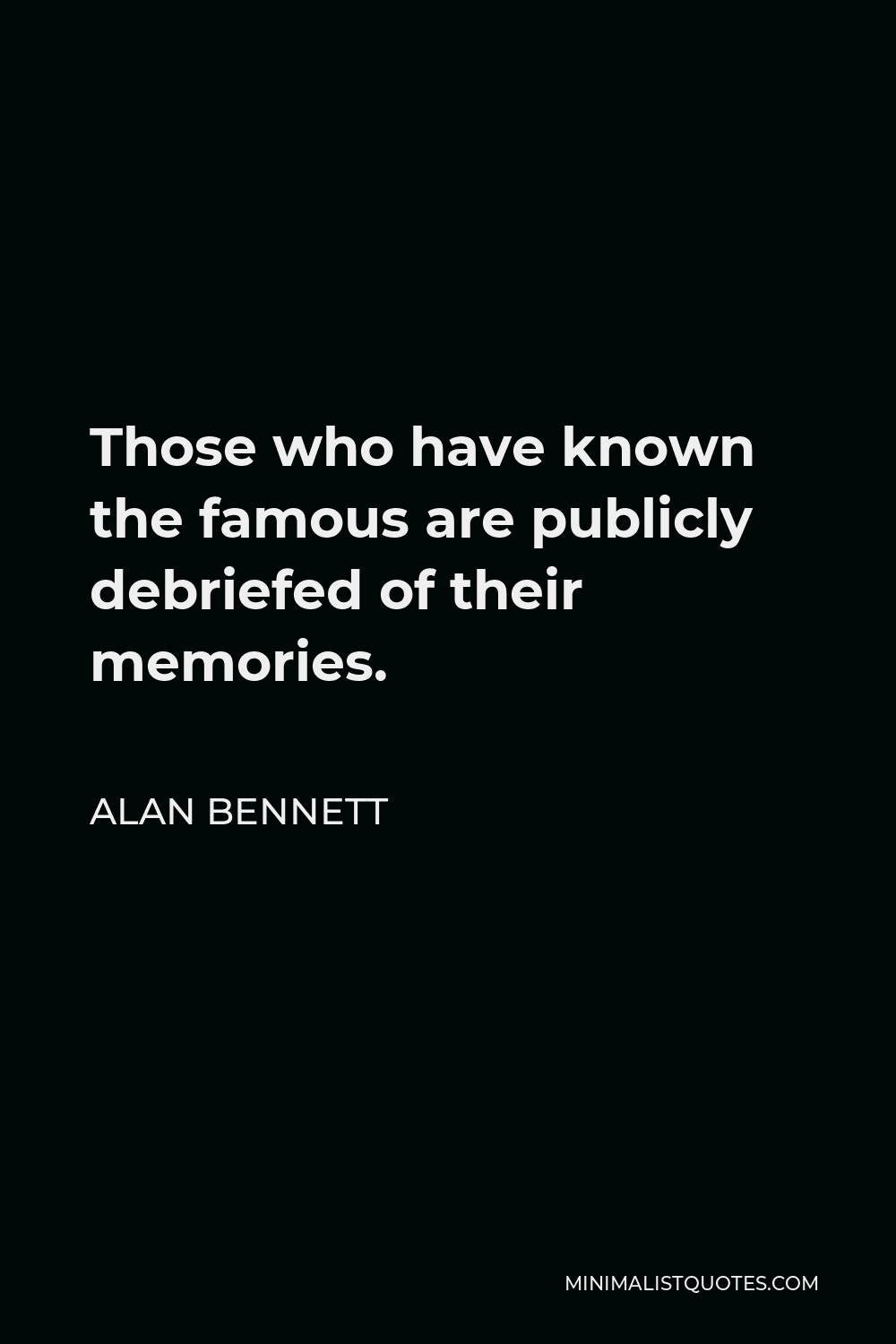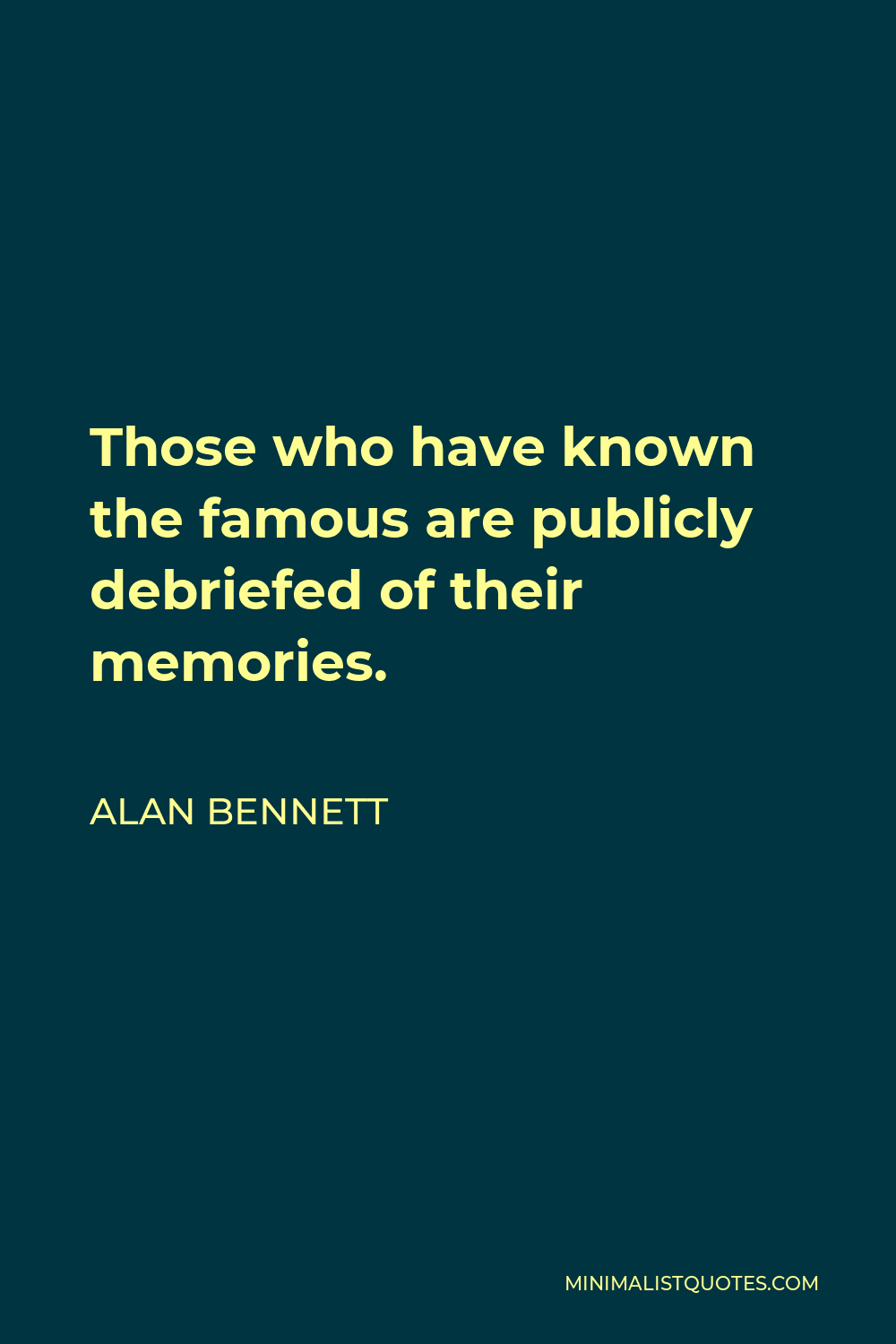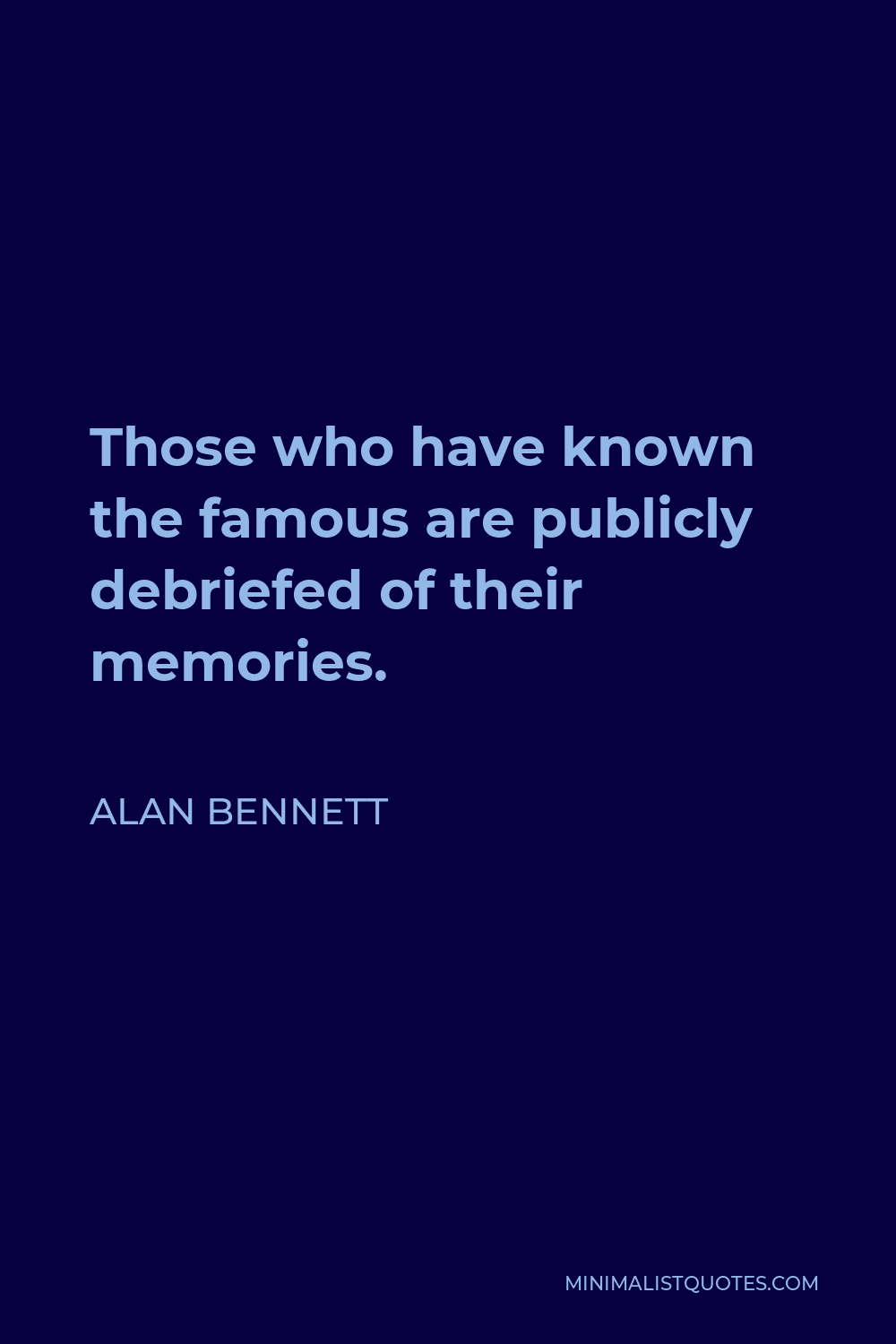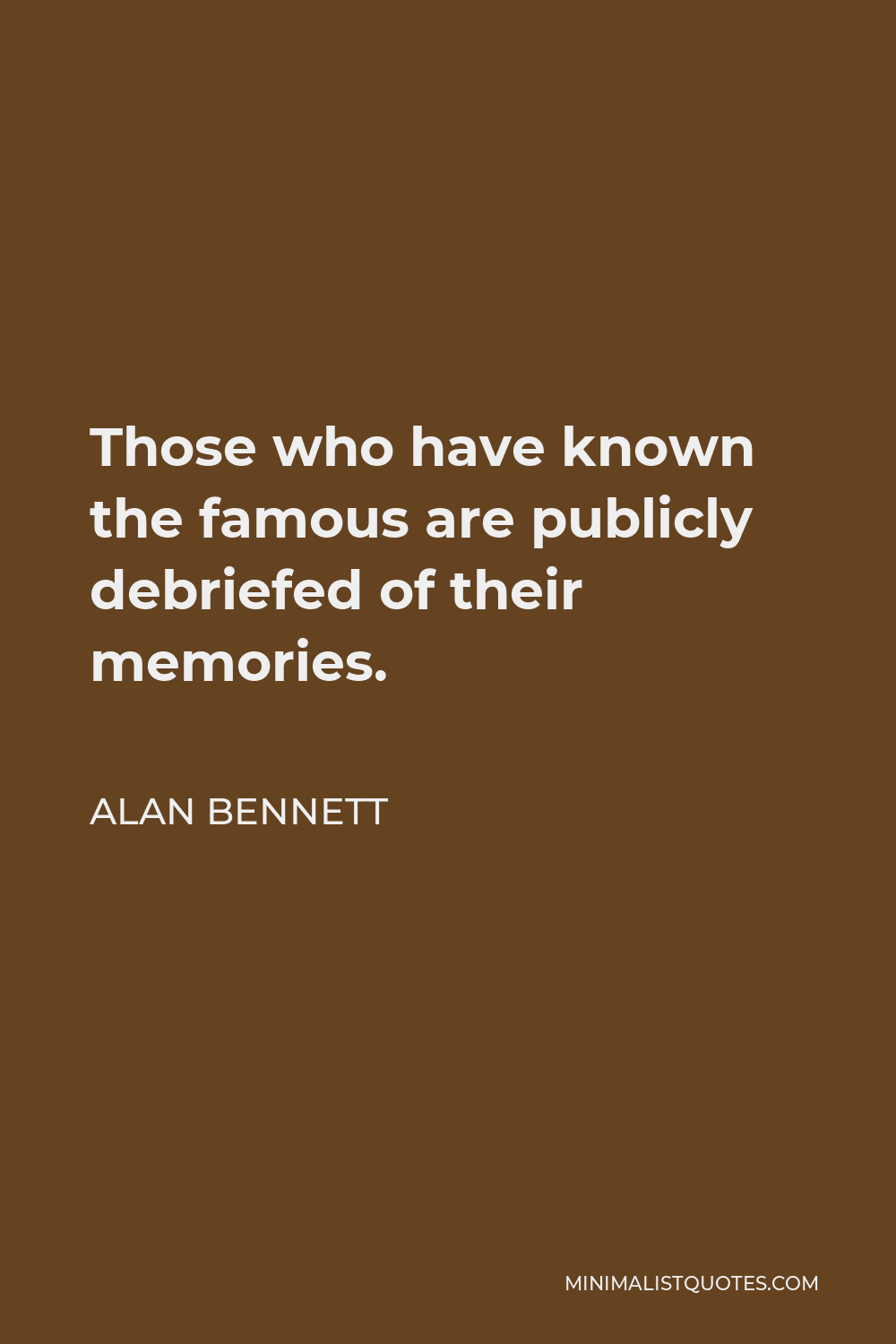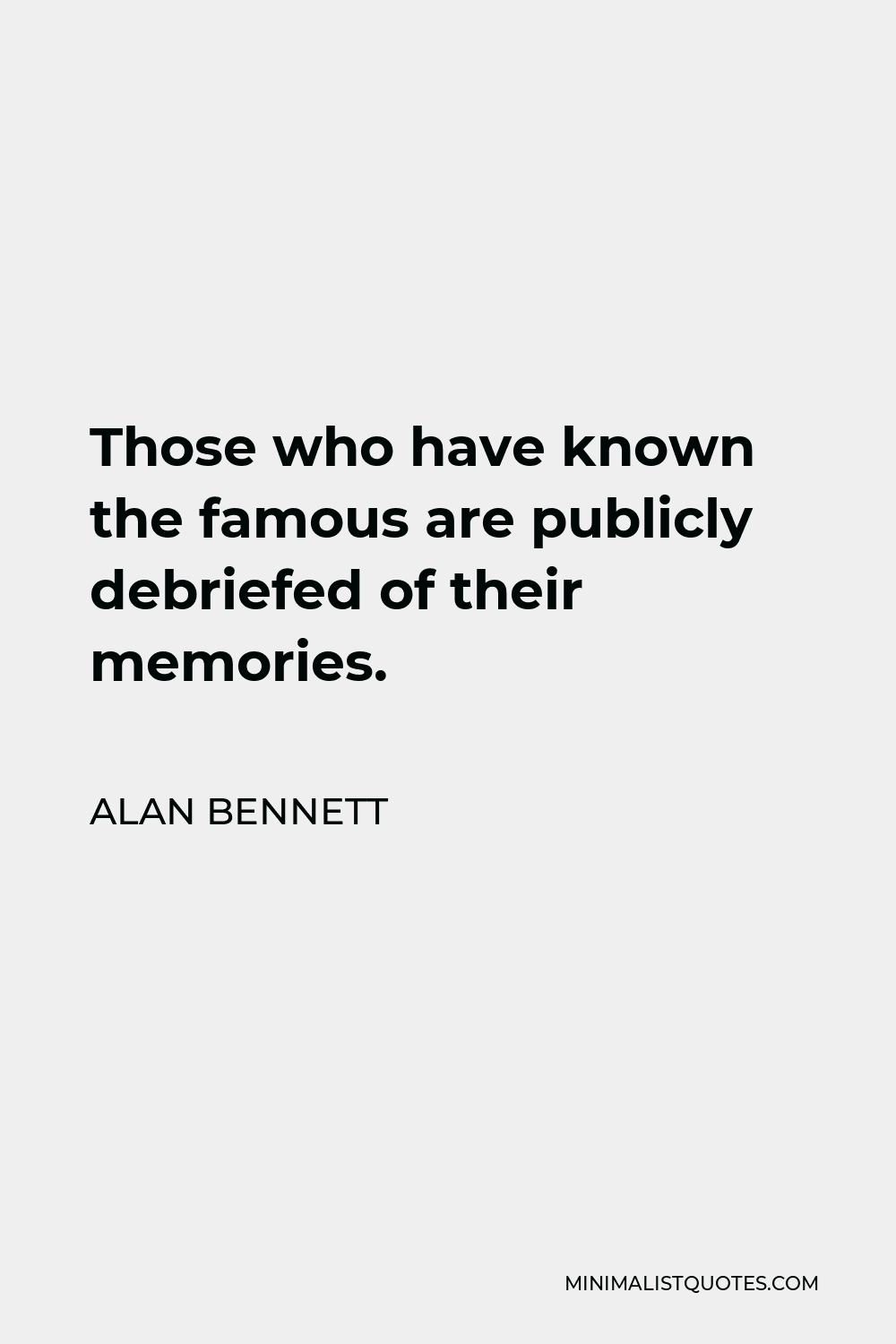I write plays about things that I can’t resolve in my mind. I try to root things out.
ALAN BENNETTThose who have known the famous are publicly debriefed of their memories.
More Alan Bennett Quotes
-





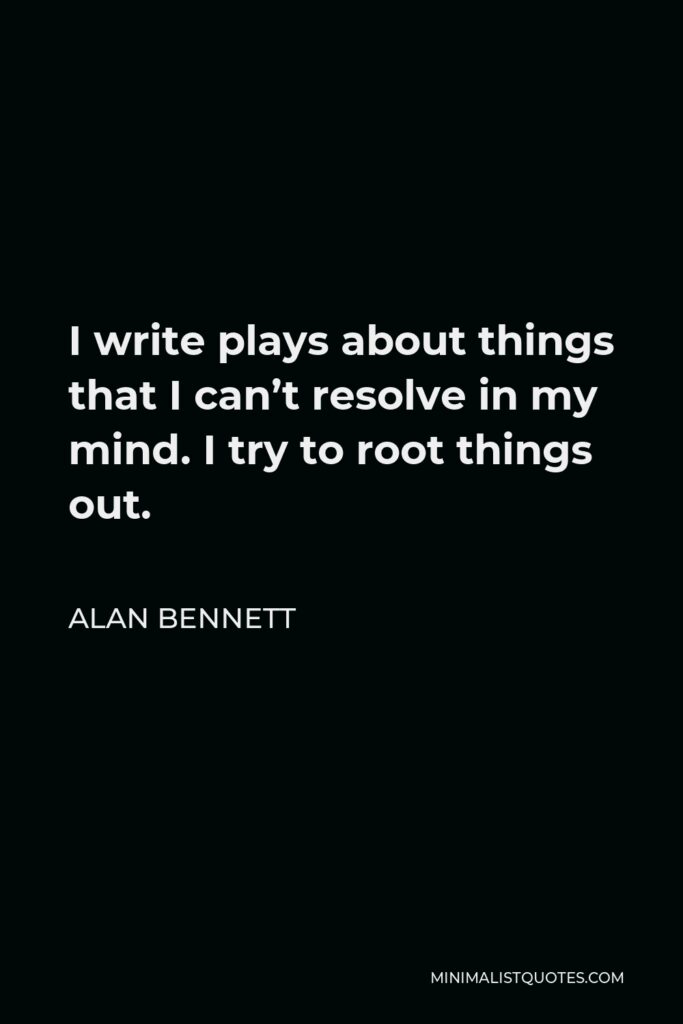

-





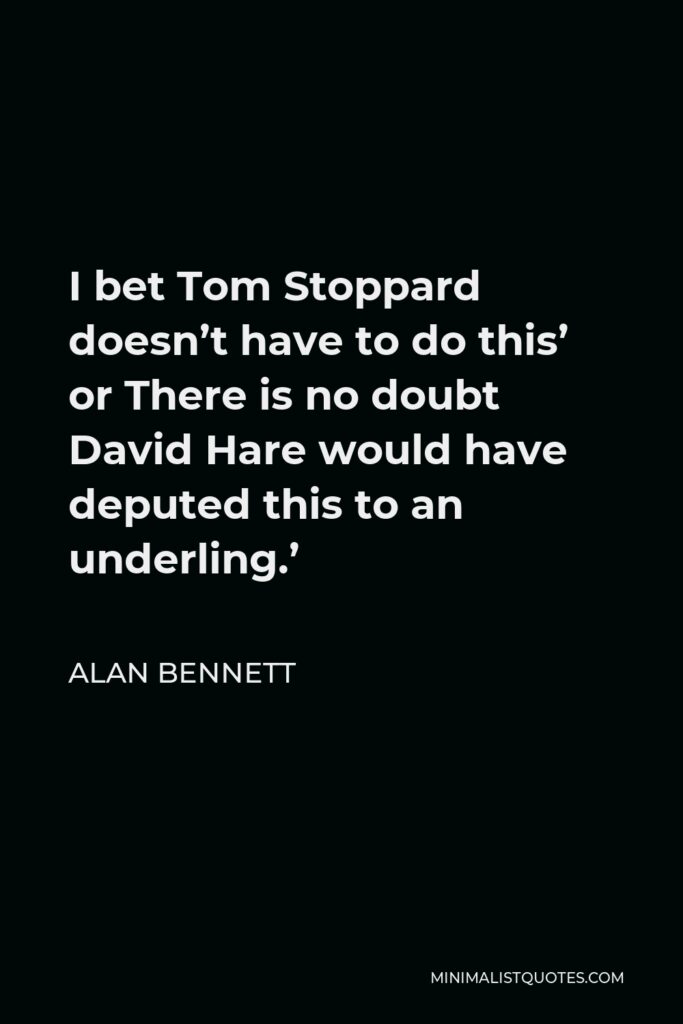

I bet Tom Stoppard doesn’t have to do this’ or There is no doubt David Hare would have deputed this to an underling.’
ALAN BENNETT -







A composite too are the neighbours, Pauline and Rufus, though I have made Rufus a publisher in remembrance of my neighbour, the late Colin Haycraft, the proprietor of Duckworth’s.
ALAN BENNETT -





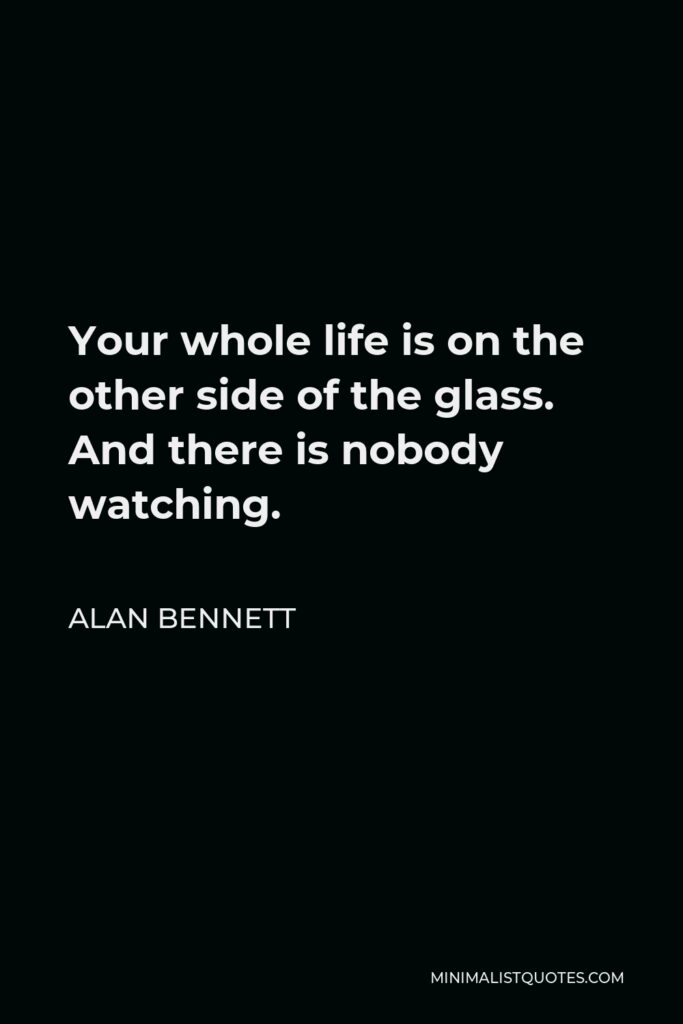

Your whole life is on the other side of the glass. And there is nobody watching.
ALAN BENNETT -





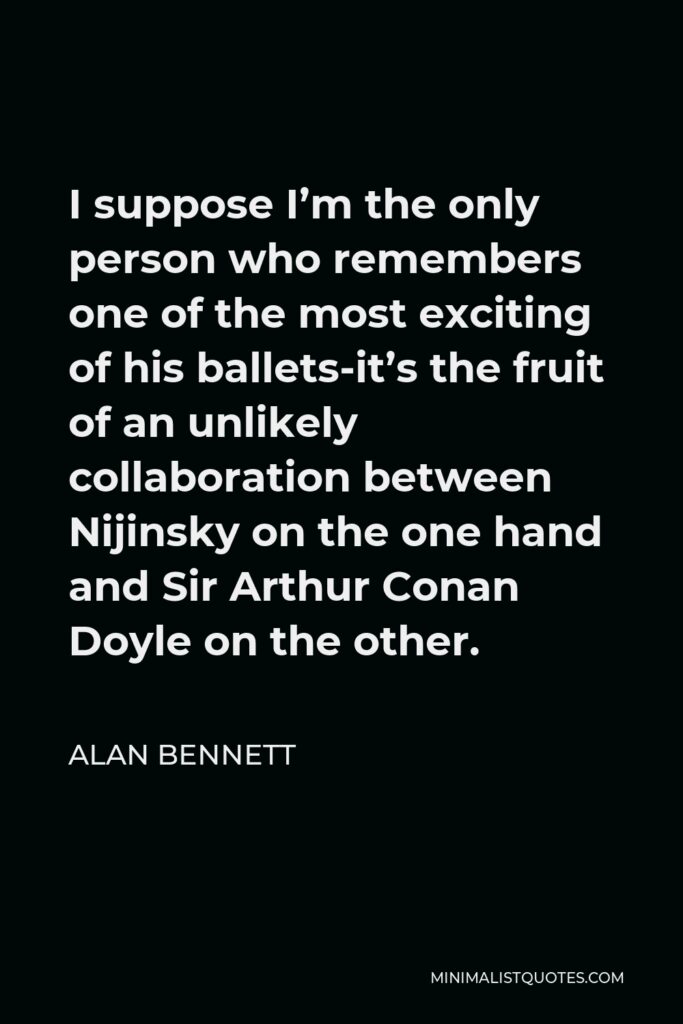

I suppose I’m the only person who remembers one of the most exciting of his ballets-it’s the fruit of an unlikely collaboration between Nijinsky on the one hand and Sir Arthur Conan Doyle on the other.
ALAN BENNETT -





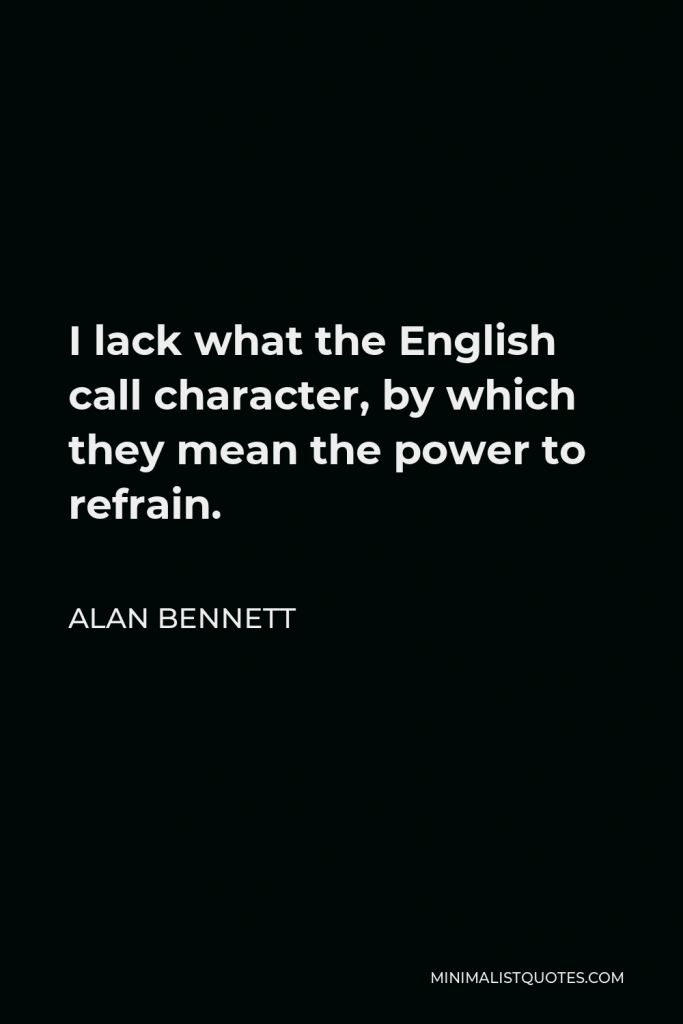

I lack what the English call character, by which they mean the power to refrain.
ALAN BENNETT -





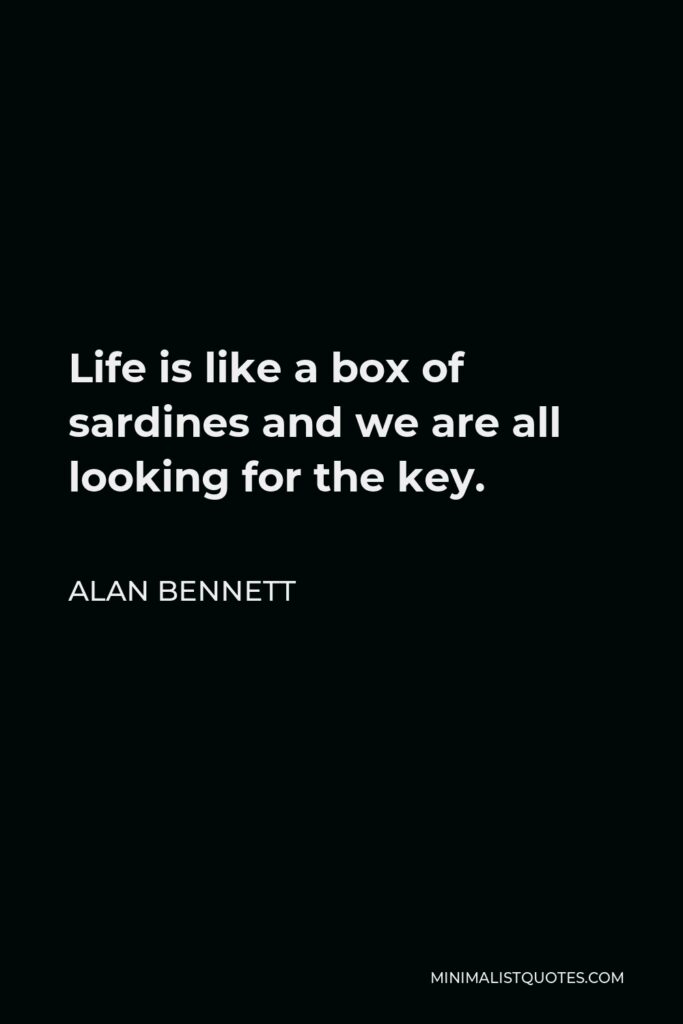

Life is like a box of sardines and we are all looking for the key.
ALAN BENNETT -





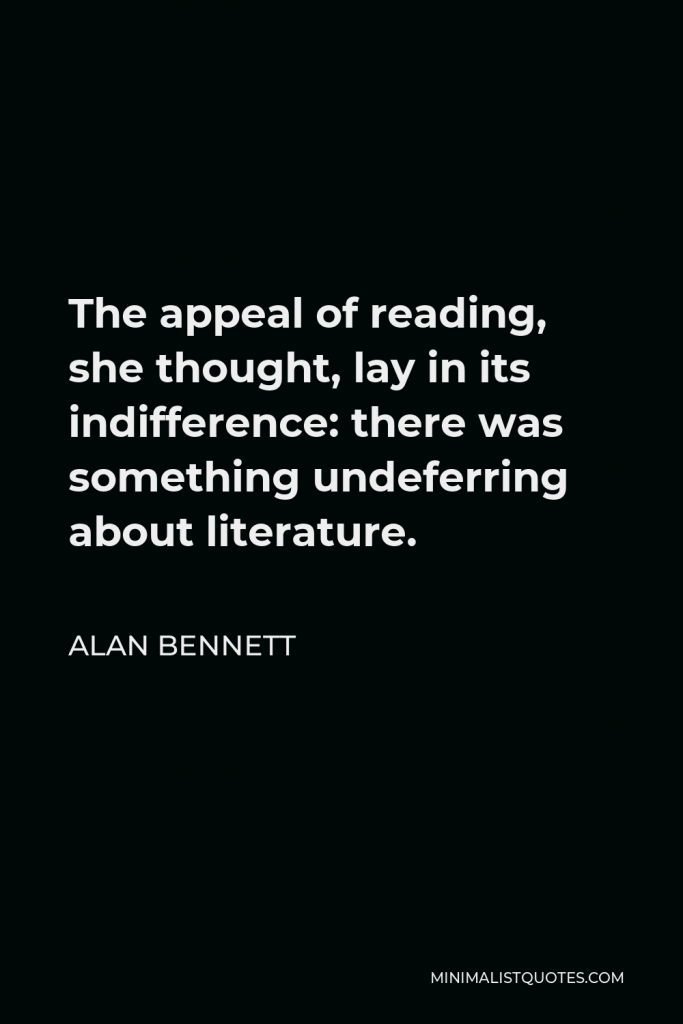

The appeal of reading, she thought, lay in its indifference: there was something undeferring about literature.
ALAN BENNETT -





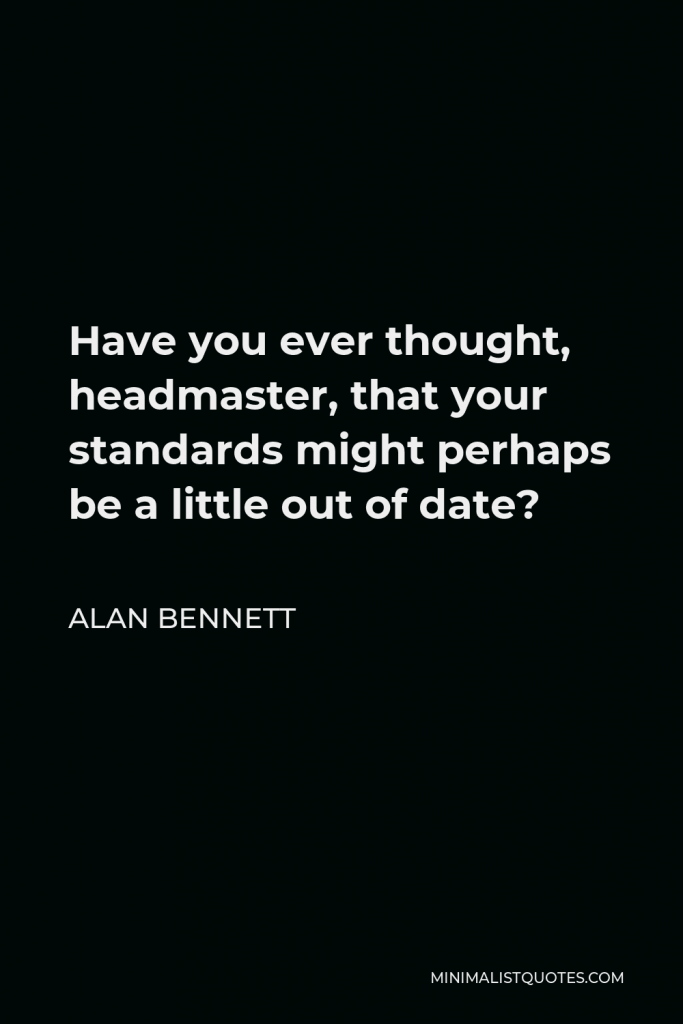

Have you ever thought, headmaster, that your standards might perhaps be a little out of date?
ALAN BENNETT -





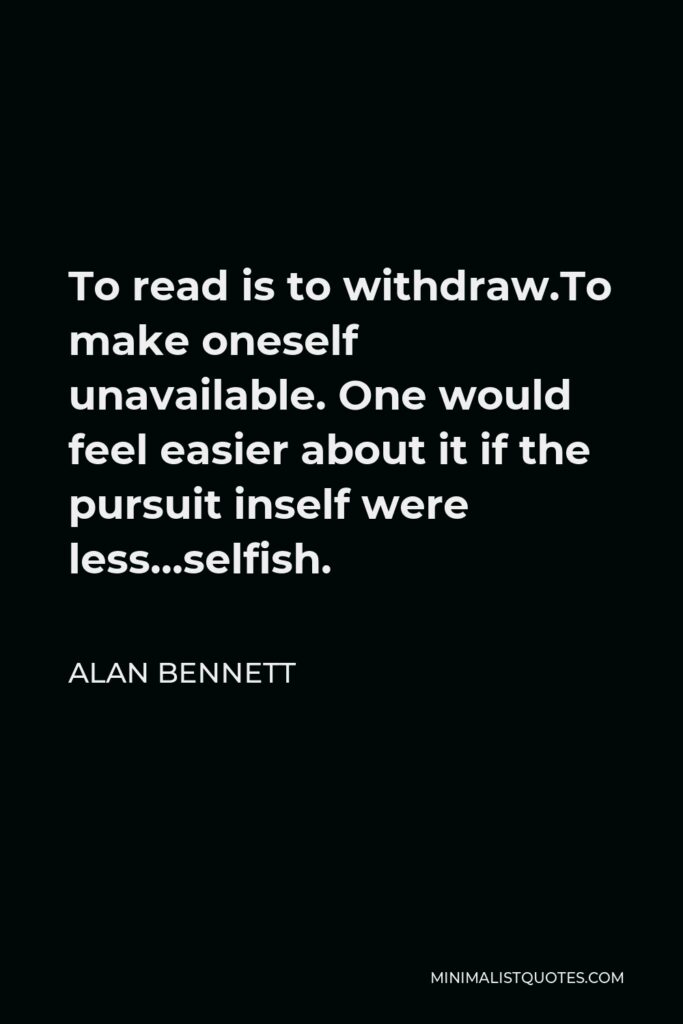

To read is to withdraw.To make oneself unavailable. One would feel easier about it if the pursuit inself were less…selfish.
ALAN BENNETT -





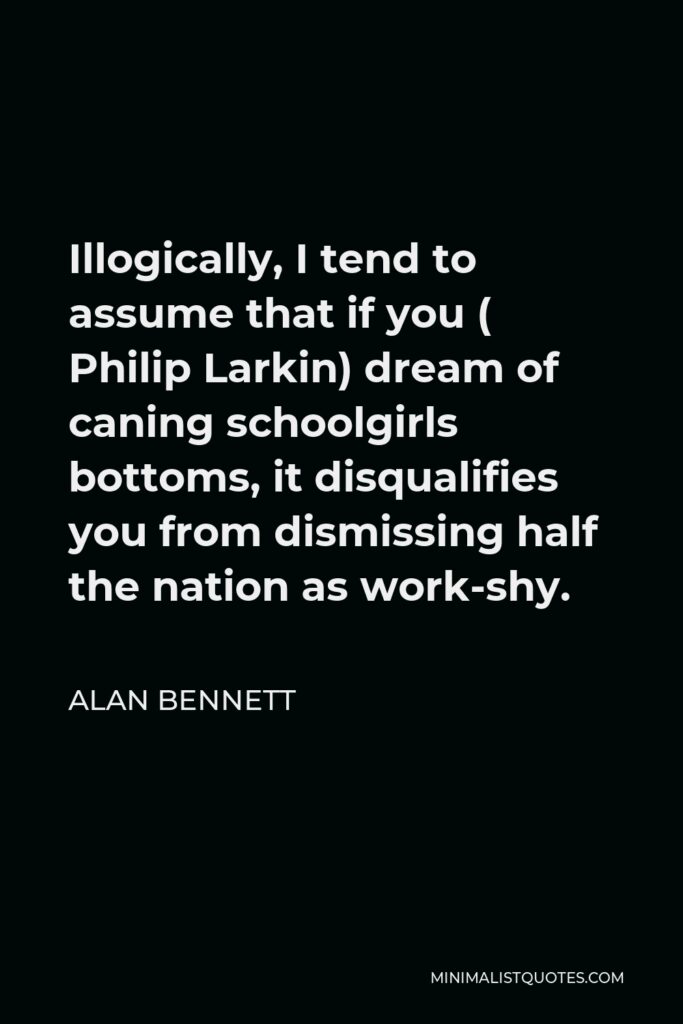

Illogically, I tend to assume that if you ( Philip Larkin) dream of caning schoolgirls bottoms, it disqualifies you from dismissing half the nation as work-shy.
ALAN BENNETT -





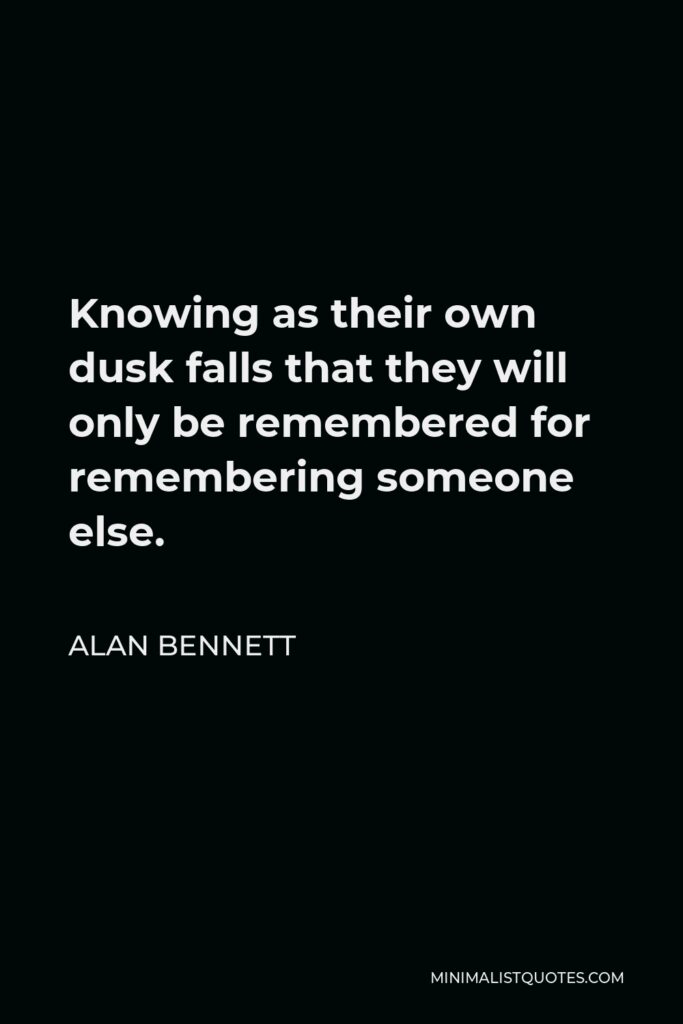

Knowing as their own dusk falls that they will only be remembered for remembering someone else.
ALAN BENNETT -





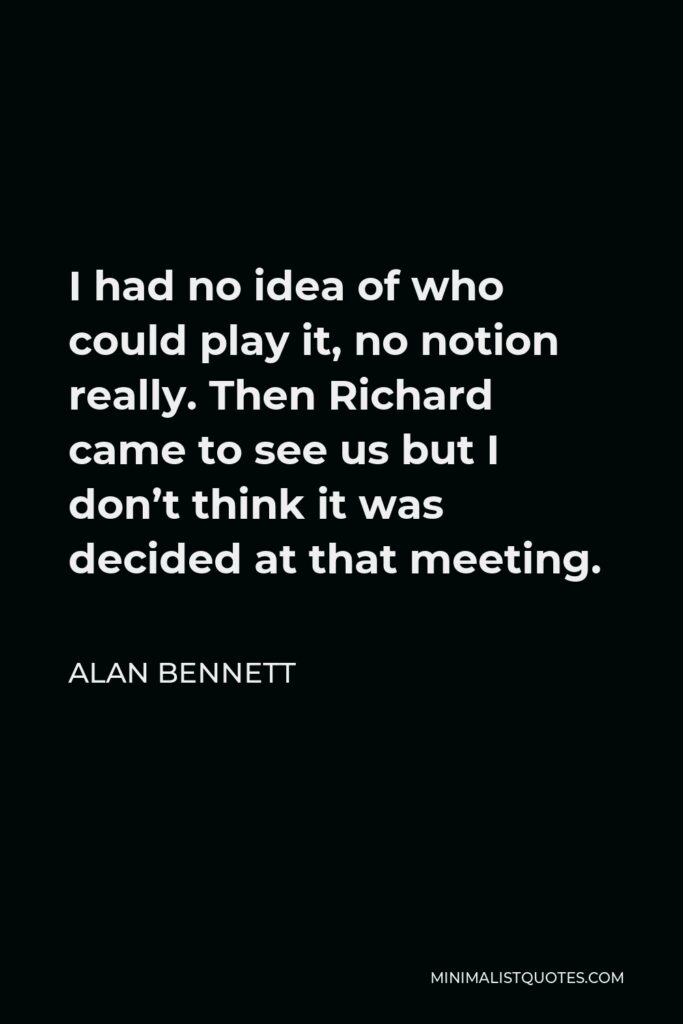

I had no idea of who could play it, no notion really. Then Richard came to see us but I don’t think it was decided at that meeting.
ALAN BENNETT -







Cancer, like any other illness, is a bore.
ALAN BENNETT -







Polly: Education with socialists, it’s like sex, all right as long as you don’t have to pay for it.
ALAN BENNETT -





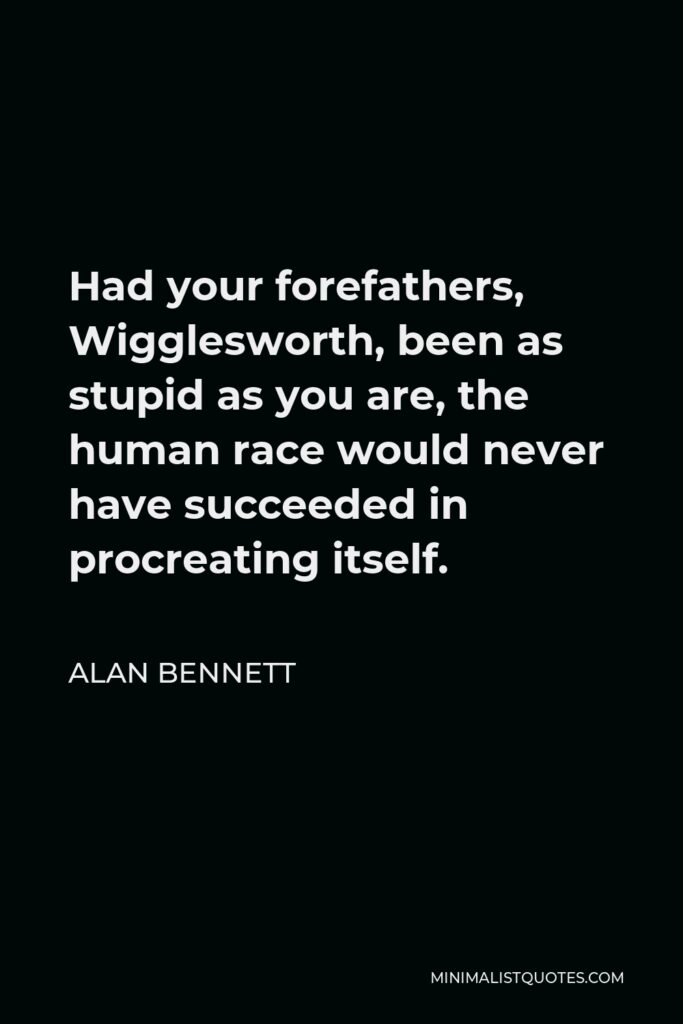

Had your forefathers, Wigglesworth, been as stupid as you are, the human race would never have succeeded in procreating itself.
ALAN BENNETT
